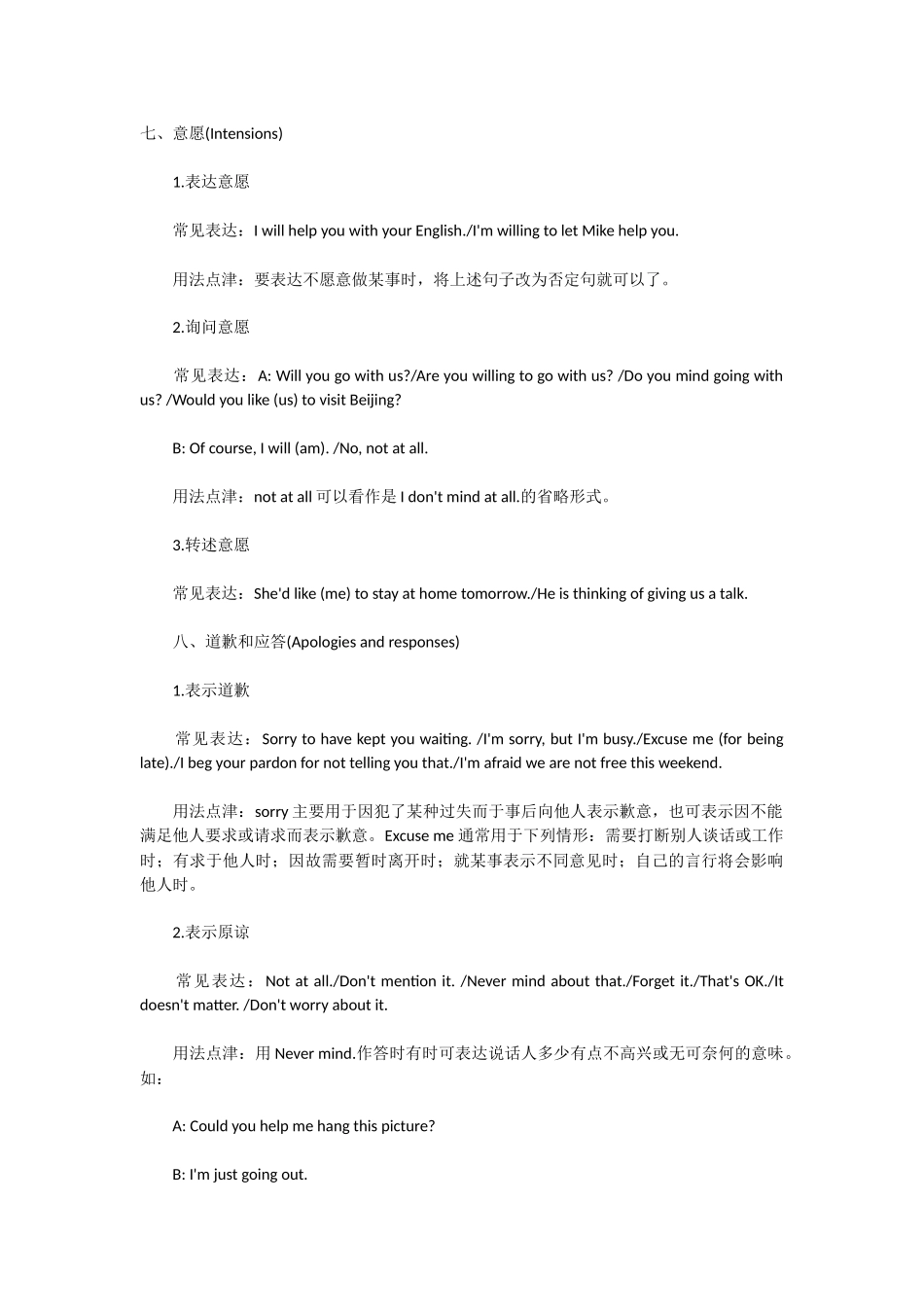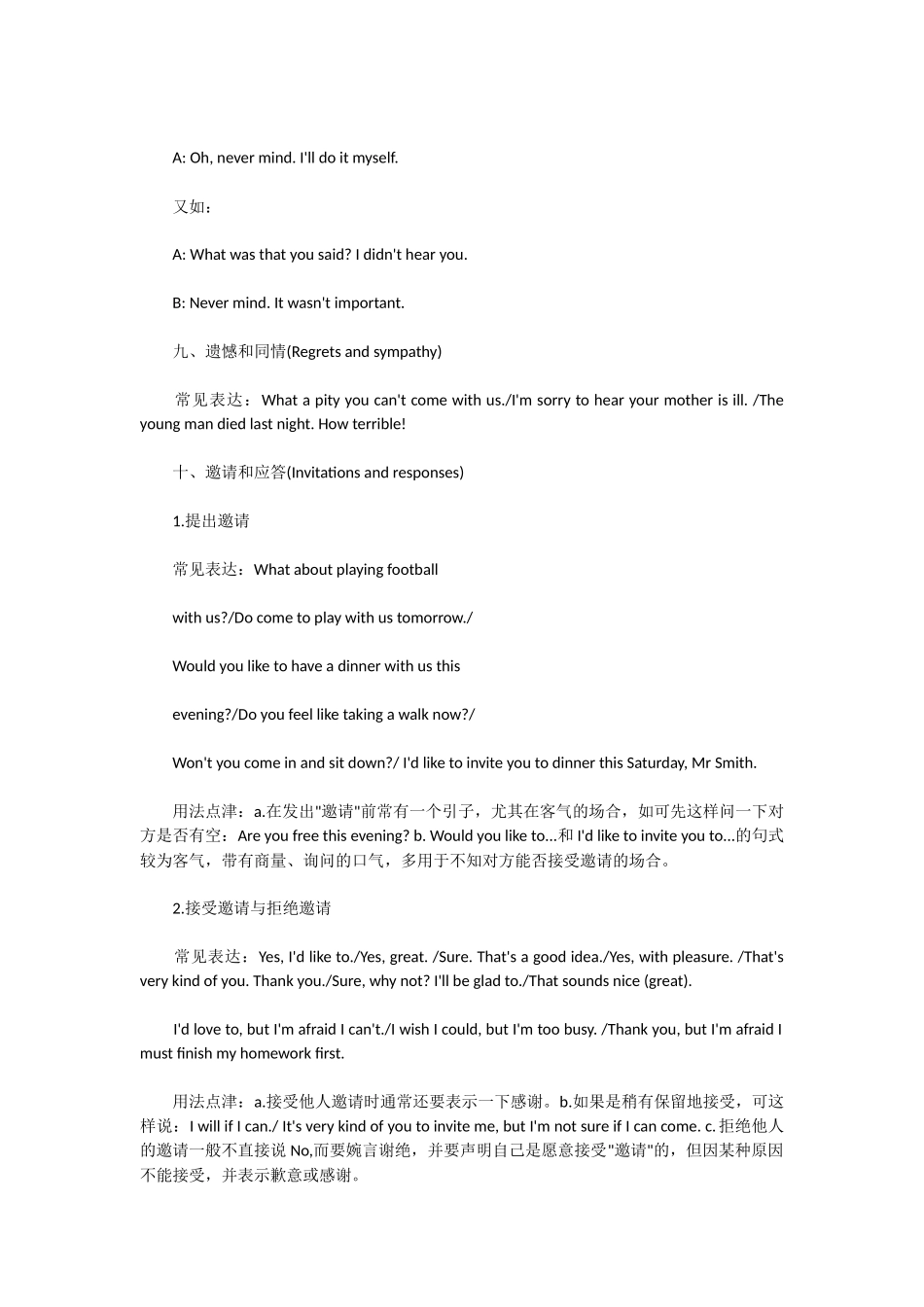七、意愿(Intensions) 1.表达意愿 常见表达:I will help you with your English./I'm willing to let Mike help you. 用法点津:要表达不愿意做某事时,将上述句子改为否定句就可以了。 2.询问意愿 常见表达:A: Will you go with us?/Are you willing to go with us? /Do you mind going with us? /Would you like (us) to visit Beijing? B: Of course, I will (am). /No, not at all. 用法点津:not at all 可以看作是 I don't mind at all.的省略形式。 3.转述意愿 常见表达:She'd like (me) to stay at home tomorrow./He is thinking of giving us a talk. 八、道歉和应答(Apologies and responses) 1.表示道歉 常见表达:Sorry to have kept you waiting. /I'm sorry, but I'm busy./Excuse me (for being late)./I beg your pardon for not telling you that./I'm afraid we are not free this weekend. 用法点津:sorry 主要用于因犯了某种过失而于事后向他人表示歉意,也可表示因不能满足他人要求或请求而表示歉意。Excuse me 通常用于下列情形:需要打断别人谈话或工作时;有求于他人时;因故需要暂时离开时;就某事表示不同意见时;自己的言行将会影响他人时。 2.表示原谅 常见表达:Not at all./Don't mention it. /Never mind about that./Forget it./That's OK./It doesn't matter. /Don't worry about it. 用法点津:用 Never mind.作答时有时可表达说话人多少有点不高兴或无可奈何的意味。如: A: Could you help me hang this picture? B: I'm just going out. A: Oh, never mind. I'll do it myself. 又如: A: What was that you said? I didn't hear you. B: Never mind. It wasn't important. 九、遗憾和同情(Regrets and sympathy) 常见表达:What a pity you can't come with us./I'm sorry to hear your mother is ill. /The young man died last night. How terrible! 十、邀请和应答(Invitations and responses) 1.提出邀请 常见表达:What about playing football with us?/Do come to play with us tomorrow./ Would you like to have a dinner with us this evening?/Do...

